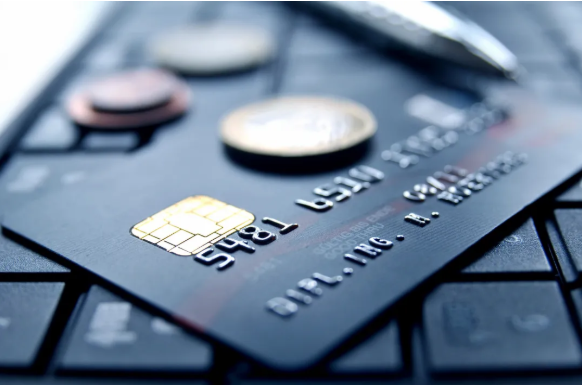What You Need to Know About Credit Card Fraud Charges in Nassau and Suffolk County
If you’re facing credit card fraud charges in Nassau County or Suffolk County, understanding how prosecutors build their case is essential to defending yourself. These cases often involve financial records, surveillance, and digital evidence—and the consequences can be serious.
Below, we explain what credit card fraud means in New York, how prosecutors try to prove it, and what defense strategies might apply in your case. For immediate help, contact an experienced Long Island Fraud Crimes Lawyer today.
What Is Credit Card Fraud in New York?
Credit card fraud involves using someone else’s credit card or card information without permission to make purchases or withdraw money. This includes:
- Using stolen physical cards
- Entering stolen numbers online
- Creating fake accounts with another person’s information
Depending on the circumstances, you could face charges like:
How Serious Are Credit Card Fraud Charges?
The seriousness depends on:
- The dollar amount involved
- The method used (online, in-person, identity theft)
- Whether the alleged conduct was repeated
If the total amount stolen is over $1,000, you could be charged with a felony. Penalties in Nassau and Suffolk County can include:
- Jail or prison time
- Probation
- Restitution to the victim
- A permanent criminal record
Prosecutors often seek strong penalties—especially if there’s a prior criminal record or multiple victims.
How Do Long Island Prosecutors Try to Prove Credit Card Fraud?
To convict someone of credit card fraud in New York, prosecutors must prove three things beyond a reasonable doubt:
- The card was used without permission
- Something of value was stolen or purchased
- The accused is the person who made the transaction
1. Proving the Cardholder Didn’t Give Permission
Prosecutors usually rely on:
- Sworn statements or grand jury testimony from the cardholder
- Police reports or fraud complaints filed with the bank
If the cardholder can’t clearly state the use was unauthorized, prosecutors may have trouble moving forward with the case.
2. Proving the Transaction Was Fraudulent and Valuable
Evidence may include:
- Bank statements or transaction records
- Merchant receipts and delivery confirmations
- Surveillance footage or shipping logs
Prosecutors use this to show what was taken and its value—key factors in determining the level of the charge (e.g., misdemeanor vs. felony).
3. Proving the Identity of the Person Who Made the Transaction
This is often the most difficult element to prove. Prosecutors attempt to tie the accused to the transaction by using:
- In-store video footage
- IP addresses and email accounts
- Phone records and shipping information
- Location data and device logs
If they can’t link the transaction to the defendant clearly, the case may not hold up in court.
Example from a Nassau County Credit Card Fraud Case
A woman in Mineola reports $1,800 in unauthorized charges for electronics shipped to an address in Westbury.
Prosecutors gather:
- Testimony from the cardholder denying permission
- The delivery address and IP data from the online order
- Evidence that the delivery went to a former acquaintance
But unless they can prove that the person in Westbury placed the order, their case may rely on assumptions—something an experienced Nassau defense lawyer can challenge.
Common Defense Strategies in Long Island Credit Card Fraud Cases
These cases may look strong on paper, but a skilled criminal defense attorney can find weaknesses in how the evidence was obtained or interpreted.
At The R.M.L. Law Firm, PLLC, we focus on:
- Challenging identity evidence
- Filing motions to suppress improper digital evidence
- Showing that multiple people may have had access to the same device or account
As a former Nassau prosecutor, Attorney Ramy Mikhail Louis knows how to attack weaknesses in the prosecution’s fraud investigations.
Frequently Asked Questions About Long Island Credit Card Fraud Charges
- What should I do if police contact me? Be cautious if you speak to police officers or investigators. You can call a defense lawyer immediately to avoid self-incrimination.
- Can I be charged if I thought I had permission to use the card? Yes—but your intent matters. A reasonable belief that you had permission may be a strong defense.
- Does the dollar amount impact the charge? Yes. Transactions over $1,000 can lead to felony charges like Grand Larceny in the Fourth Degree.
- What if there’s no video or digital proof tying me to the transaction? Lack of direct evidence can strengthen your defense. Prosecutors must prove guilt beyond a reasonable doubt.
- Can I avoid jail for a first offense? Possibly. First-time offenders may qualify for a plea deal, reduced charges, or diversion programs in Nassau or Suffolk County.
Contact The R.M.L. Law Firm, PLLC for Help Today
If you’re facing credit card fraud charges in Nassau County, Suffolk County, or New York City, don’t wait to act. Prosecutors begin building their case right away—you need a defense team ready to respond fast.
The R.M.L. Law Firm, PLLC offers over a decade of experience, including insight from a former prosecutor. We aggressively defend clients in credit card fraud cases throughout Long Island, Queens County, and NYC.
Contact us now for a free consultation and start protecting your future.


